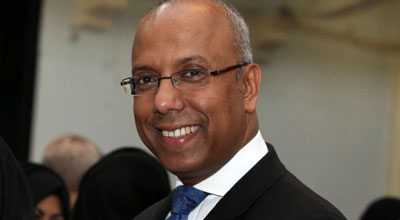Around 2 mln Muslims begin Hajj pilgrimage
 Pilgrims from around the world have begun moving from the tent city of Mina to the holy site of Kaaba in Saudi Arabia for the Hajj, one of the biggest gatherings on the planet.
Pilgrims from around the world have begun moving from the tent city of Mina to the holy site of Kaaba in Saudi Arabia for the Hajj, one of the biggest gatherings on the planet.
The number of pilgrims coming from abroad for Hajj this year since the start of arrivals until yesterday totaled 1,372,148 pilgrims, while 308 of them have died.
According to the daily statistics of the Directorate General of Passports, the number of pilgrims came by air totaled 1,324,175 pilgrims, by land 35,050 pilgrims, and by sea 12,923 pilgrims, that is less by 15,151 pilgrims than the number of arrivals for the same period last year, at a rate of 1%.
From all races and ages, they flocked into the Grand Mosque, where they prayed — some silently in tears and others loudly in groups carrying their countries’ flags.
The hajj is among the five pillars of Islam and every capable Muslim must perform the pilgrimage at least once.
Hajj is the fifth pillar of Islam. It is a once-in-a-lifetime requirement for every Muslim. It is a spiritual gathering of Muslims from all over the world seeking forgiveness and the blessings of the Lord. Every ritual of Hajj emphasizes the fact that we are all equal before God. There is no difference between rich and poor, white or black, superior or inferior, weak or strong, man or woman, Eastern or Western.
With another million pilgrims expected for the hajj, the Kaaba is now barely visible amid the surrounding construction works.
Tawaf, or circumambulating the Kaaba, is a ritual of the pilgrimage performed by the white-clad pilgrims who come from all over the world.
They are following the 1,400-year-old tradition of Islam’s Prophet Mohammed. While the pilgrims will not notice it, they are arriving in a country at war.
Since March, the kingdom has led an Arab coalition conducting air strikes and supporting local forces in Yemen against Shiite Huthi rebels. Despite this, Saudi announced its readiness to secure the event with 100000 security members (MORE).
This year’s pilgrimage coincides with a refugee crisis in Europe after millions of asylum seekers, most of them Muslim, fled wars in Syria, Iraq and Afghanistan.
A challenge again facing the hajj is potential transmission of the deadly Middle East Respiratory Syndrome coronavirus (MERS-CoV).Health Minister Khaled al-Falih said all pilgrims are so far in “very good, if not excellent health.” The health ministry has mobilised 25,000 additional medical staff to support the hajj, but says there has never been a case of MERS among pilgrims.





